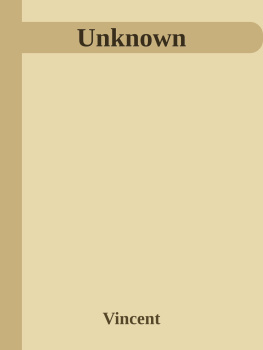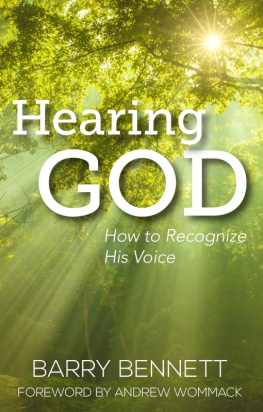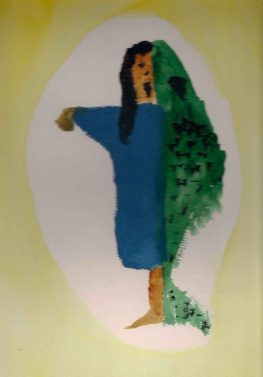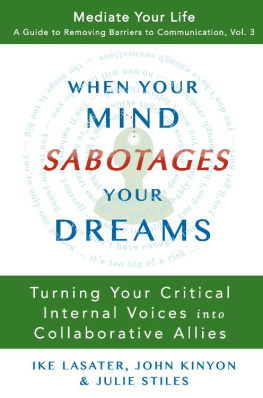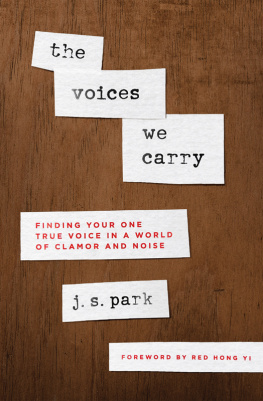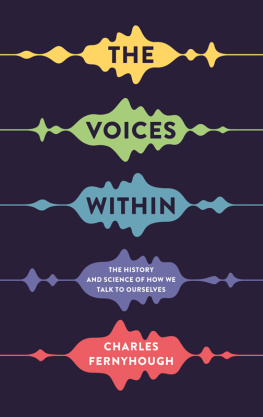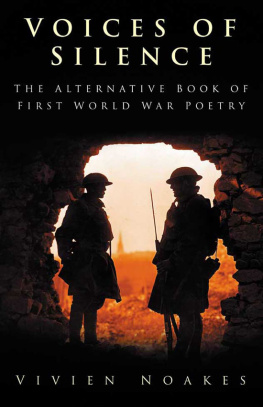..listening
to the
silences..
a personal odyssey
Roy Vincent
...if you are being engulfed in the quicksands of your mind;
if you are calling for help in the silence of your mind;
if you cannot silence the voices that invade your mind,
dominate and torment you;
if you are caring for someone who is struggling within the morass
that their mind has become...
if you are any of these, I am writing for you.
Dont get annoyed
if the people coming to see you
if the people wanting to talk to you
cant manage to express
the uproar raging inside them
Much more important
than listening to the words
is imagining the agonies
fathoming the mystery,
...listening to the silences...
Dom Helder Camera
Dedicated
with love to
My Daughter
...and to what
might have been.
INTROIT...
I am probably one of the people least likely to write anything remotely autobiographical. Not that I have led an uninteresting or uneventful life. As my friends know to their cost, they have only to press the a p propriate button and they will have their ears bent with anecdote and happenstance for some considerable time. Essentially I am a private person and cringe at the products of this self-revelatory, tell-all culture in which we live. Daily, hourly, by the minute, on television and radio and in the printed media, people are pouring out the dross of their lives to a gaping, prurient world, and like most trash it is soon dumped and overlaid by the next batch.
So why write anything at all? Friends persuade me that from what has happened to me, been inflicted upon me, there can be drawn that which may be of help and guidance to others; to people who find themselves overwhelmed by the problems of their minds; problems which flood their lives and threaten to submerge them, to drown them, or suck them down.
If I was to find myself trapped in quicksand, the person most calculated to be able to help me, in whom I would have most confidence, would not be an expert in sand and water mixtures, emulsions, but someone who had actually been there, had been mired and sucked down; someone who had actually extricated himself from the slough - who, even though he used the immortal words of Corporal Jones in Dads Army, Dont panic, dont panic, would say them with all of the conviction and authority of someone who knew what he was talking about, and would back-up his words with the practical rescue techniques learned in the maelstrom of personal life threatening e xperience.
Life threatening? But isnt this going to be an a c count of the perils that can terrorise, intimidate the mind? How can these be classed as life threatening? I have twice been in these all egorical quicksands; the first time I was pushed, albeit accidentally, but over the long period in which I floundered I almost lost my mental life, my mind; the second, much briefer time, the one in which I strayed acci dentally and innocently into a mire, I found myself in grave danger of losing my spiritual life. So, in that context, yes; life threa t ening. But also, and it must be faced, a point can be reached when suicide is the preferred option. So, life threatening? Yes.
Unless you have been there yourself, I imagine that you will have difficulty with the concept that death and oblivion could be preferable to continued life, assuming that one had any choice. Frankly, I hope that you never find yourself in that morass. But the imagination cannot conceive of the terror that can be created in the human mind from ones own tormented soul or which can be planted there by dominating voices, from whatever source they may come. Perhaps a better understanding of the prospect of final submersion b efore the reality of which suicide is preferable, might be achieved by contemplating the dilemma of someone actually trapped and in imminent danger of being overwhelmed in real quicksand, and having in his hands the ready means of his own death and release.
Sir Peter Scott in his wildfowling book, Morning Flight graphically paints in words the picture of his own brother, David, fac ing this very situation. David had spent a day alone wildfowling and found himself towards the close of the day having shot a widgeon, but it having landed on the opposite side of a small estuary. The tide b e ing out, he had waded across and walked along the far shore. Su ddenly he found the sand to be soft; he took two more steps and it be came softer. He tried to turn back and he had sunk up to his knees. At every move he sank deeper, and the sand around him had turned to a viscous pudding. His movements became desperate and he made greater and greater efforts. When he stopped, he had sunk to his waist. The more he struggled the farther he sank, until he was so much submerged that he could no longer struggle. Only his head and shoulders and arms remained above the jelly-like morass. Then he began to think carefully of his position.... In an hour the flood tide would arrive. But he would not see it come. He would not watch the water approaching inch by inch until he lost his reason. There were two cartridges in his gun...
David was within moments of taking his own life when something made him turn, and there, a dark shadow on the tide, was a small boat with three net fishermen. After desperate and hoarse shouting and waving, they saw and came near, but not near enough for a rope to reach, so two of the fishermen got out.... they were adept at moving on the surface of the quicksand without sinking in. They hopped about on all fours, never remaining more than a second in one place. They reached harder ground and from there threw a rope...the men gave him hope and strength, and after ten minutes of tremendous effort he felt himself gradually working up and out... It turned out that it was the first day of the smelt fishing se ason, and one day earlier there would have been no boat on the river.
The quicksand of the mind and the quicksand of the shore are most terrible, most vile because they are invisible, inde scribable. More terrible for the victim in his mind, because he cannot shout, for who is there to hear him, if indeed he knew what to shout. And yet, in the fastnesses of his mind, there is a desperate call, plea, for help. The quicksands of the mind are terrible because of their lone liness. On the brightest day, in the most sparkling company, the person in depression cannot lift his eyes to beauty, nor open his ears to the laughter, life and joy around. He is in the gut-empty world of no-mind; robbed of all emotion; unable to believe in human love, nor love from any source. If he knew them he would echo the words of the psalmist ...you have turned my friends and neighbours against me, my one companion is darkness.
But, while darkness brings the immediate oblivion of sleep, it is a traitor. It at first hides, then treacherously opens the trap-door to the world of no-sleep; the world of the night terrors; the world of no-time between true night and day; the world of the to r menting, mocking, teasing, dominating voices - voices from where? If you read on you will find an answer. It may not be an answer which you will want to read or which you will accept, but if you dont Im afraid that that is your problem. My answer is the answer of personal experience.
For nearly forty years, I have had experiences that I would rather not have had, experiences that could have made me exceed ingly bitter. But the bitterness could further have harmed me had I let it take a hold. Instead, I have been exceedingly fortunate in being able to extract, distil from it all, much which has been, and is, enthral l ing and enlightening. Friends have persuaded me that others may d e rive benefit from my experiences and enlightenment. So, if you are yourself being engulfed in the quicksands of your mind; if you are cal ling for help in the silence of your mind; if you cannot silence the voices which invade your mind, dominate and torment you; if you care for someone who is struggling in the morass which their mind has be come - if you are any of these I am writing for you. As someone who has been there, extricated himself, I am trying to throw you a rope; and while I do not hop around on all fours, I have learned to tread lightly, warily amongst these perils.
Next page
